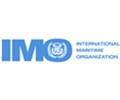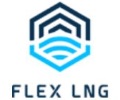Ship Recycling: Limited Activity Remains the Norm
 The ship recycling market is still exhibiting limited activity all around. In its latest weekly report, Best Oasis (www.best-oasis.com), a leading cash buyer of ships said that “the ship recycling market remained largely inactive across all major destinations this week, with no significant improvements or sharp declines. In India, the market remained unchanged from the previous week, with stable prices and no shift in the availability of imported scrap. However, anticipation is building around the Union Budget 2025, as industry participants expect potential measures to regulate rising steel imports, which could impact future market dynamics. Bangladesh also saw little to no activity, with no updates on the NOC for non-green yards, while weak steel demand and political uncertainty continued to weigh on sentiment. Pakistan experienced a similarly slow week, with minimal transactions and no major developments. In Türkiye, steel prices declined slightly, leading to an increase in ship supply, but end buyers adjusted their bids downward as demand weakened”.
The ship recycling market is still exhibiting limited activity all around. In its latest weekly report, Best Oasis (www.best-oasis.com), a leading cash buyer of ships said that “the ship recycling market remained largely inactive across all major destinations this week, with no significant improvements or sharp declines. In India, the market remained unchanged from the previous week, with stable prices and no shift in the availability of imported scrap. However, anticipation is building around the Union Budget 2025, as industry participants expect potential measures to regulate rising steel imports, which could impact future market dynamics. Bangladesh also saw little to no activity, with no updates on the NOC for non-green yards, while weak steel demand and political uncertainty continued to weigh on sentiment. Pakistan experienced a similarly slow week, with minimal transactions and no major developments. In Türkiye, steel prices declined slightly, leading to an increase in ship supply, but end buyers adjusted their bids downward as demand weakened”.

Best Oasis added that “overall, the global ship recycling market remained sluggish, with economic and policy uncertainties keeping participants on the sidelines. While expectations for potential government interventions are growing, the industry continues to operate in a wait-and-watch mode, hoping for renewed demand and policy clarity to bring momentum in the coming weeks. Global crude steel production reached 144.5 million tonnes in December 2024, up 5.6% from the previous year, mainly driven by China’s surge to 76.0 Mt (+11.8%). While India also saw strong growth, key producers like Japan, the U.S., Russia, and South Korea declined, with Germany and Brazil posting modest gains, while Türkiye and Iran dropped. China’s total 2024 steel output hit 1.173 billion tonnes, exceeding half of global production. With domestic demand weakening, China’s steel exports jumped 36.2% to 90.26 million tonnes, the highest since 2016. This oversupply has led to concerns over market dumping, prompting countries like India and Malaysia to impose anti-dumping measures and tariffs. While China drives global steel growth, its export surge is straining international markets”.

In a separate report, shipbroker Intermodal added that it was “another week of limited activity for ship recycling markets. In India, we had the Union Budget announcement on February 1st, prioritizing tax relief for lower and middle-income groups, alongside investments in agriculture, urban development, and structural reforms. In relation to the steel sector, the introduction of a 3-year plan for new infrastructure projects could imply benefits, together with a potential increase of private investments fueled by the increase of available income. The local steel market showed slight improvement, though concerns over a potential oversupply of low-cost Chinese steel persist. Steel plate prices remained stable, while the Indian Rupee gained 0.4% w-o-w against the U.S. Dollar. The ship recycling market saw no significant changes in activity. Following some activity witnessed in the previous weeks Bangladesh recycling market was sluggish this week, with low demand for recycling tonnage and a challenging economic environment including persisting inflationary pressures, depreciated local currency and political instability. The absence of an elected government has stalled new infrastructure projects, further limiting demand. On the HKC compliance front, with the January 31st deadline for NOCs now passed, BSBRA has requested an extension from the Ministry of Affairs to allow recyclers more time to comply.

In Pakistan, the market remains stagnant without any activity. The yards need undertake the necessary upgrades in preparation for the Hong Kong Convention’s enforcement. The sector’s outlook remains bleak, and government intervention is crucial for its revival. The steel market continues to struggle with a bearish outlook for local plate prices. On the economy’s front, the State Bank of Pakistan cut its key policy rate by 100 bps to 12%, marking the lowest since March 2022, alongside market expectations. This is the consecutive rate reduction aimed at stimulating economic activities as inflation eases. Pakistan’s GDP grew by 2.5% in 2024, with 3.2% growth projected for 2025. In Turkey the ship recycling market faced downwards pressures on prices offered for end-of-life vessels, as an increased supply of demolition candidate vessels, prompted buyers to lower offers, making agreements with sellers more difficult. The Turkish Lira continued to depreciate against the U.S. Dollar, however short-term currency fluctuation dropped to a 10-month low, in line with the True Value Strategy adopted by the government. This policy aims to keep the currency’s value below inflation to mitigate the impact of depreciation on consumer prices”, Intermodal concluded.
Nikos Roussanoglou, Hellenic Shipping News Worldwide

 Hellenic Shipping News Worldwide Hellenic Shipping News Worldwide, Online Daily Newspaper on Hellenic and International Shipping
Hellenic Shipping News Worldwide Hellenic Shipping News Worldwide, Online Daily Newspaper on Hellenic and International Shipping























 PG-Software
PG-Software